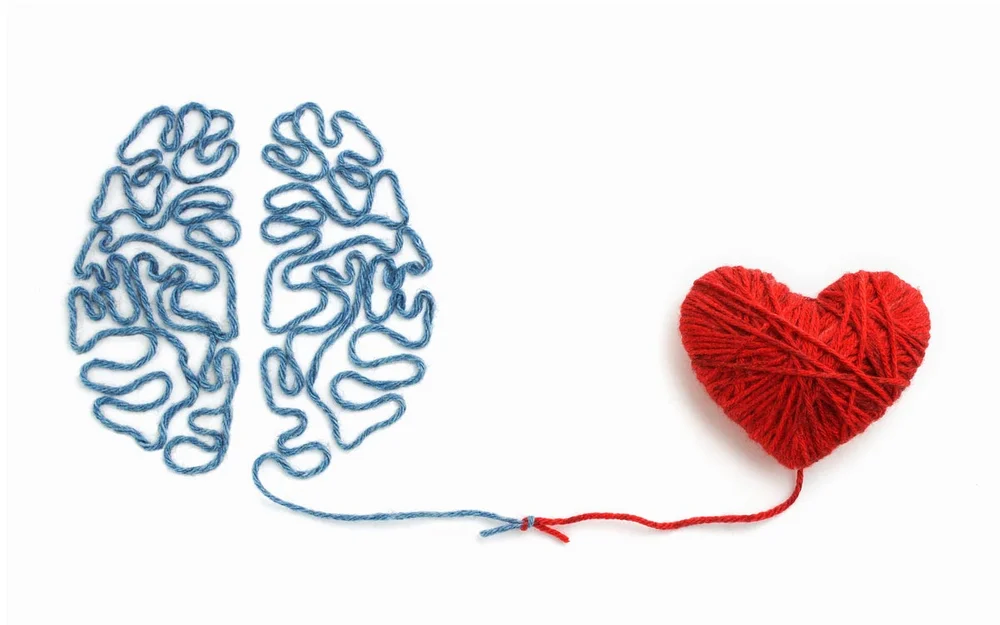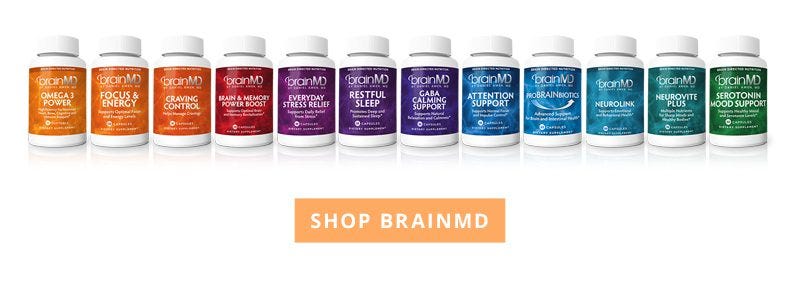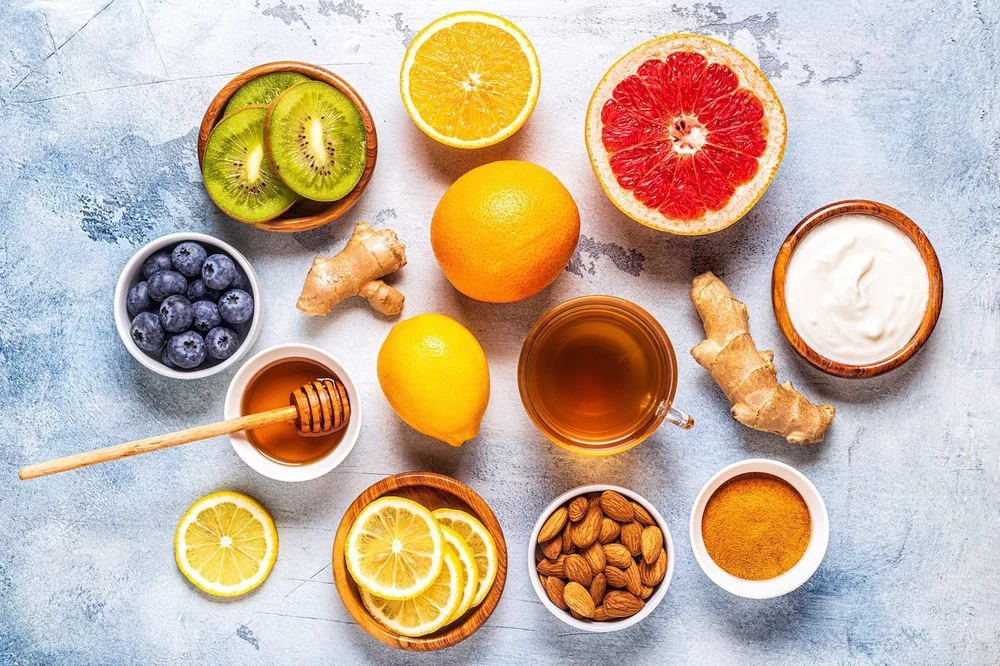10 Ways to Keep Your Brain and Heart Healthy
10 Ways to Keep Your Brain and Heart Healthy
Most people know that the omega-3 fatty acids found in fish oil are good for their brain. But many are unaware that omega-3s are also crucial for their heart and circulatory health. When it comes to the benefits of omega-3 supplementation with fish oil, what’s good for the brain is good for the heart.
Omega-3s and Your Heart
The two most studied omega-3 fatty acids are eicosapentaenoic acid (EPA) and docosahexaenoic acid (DHA). These are essential for our health and well-being – our bodies need them for a diverse range of essential life functions. Though the body sometimes can make them from smaller omega-3 fatty acids, EPA and DHA are practically like vitamins because the body is very inefficient at making them (some people can’t make them at all). The only way to be sure we get the amounts of EPA and DHA we need is through foods or supplements.
Unfortunately, surveys indicate most people don’t get enough omega-3s in their diet. Research consistently shows that most Americans aren’t getting the amounts of EPA and DHA in their tissues that they likely require for optimum brain and heart health. Some studies demonstrate that as many as 90% of adults have suboptimal levels.
The good news is that it’s possible to help your heart by getting proper amounts of omega-3s and by making healthy choices that will set you up for mind/body success. So, show your heart some love by following these 10 steps to optimizing your health…
10 Healthy Habits To Help You Love Your Heart
- Energize with Exercise
Our bodies aren’t meant to be motionless and inert; they have muscles, a heart, and a cardiovascular system that need to be exercised daily. Physical activity makes your heart stronger and improves its ability to pump blood throughout your body, which increases blood flow to your brain. Better blood flow equates to better overall brain function, so energize with exercise. Thirty minutes 3 or 4 times a week is all you need. If you don’t know what exercise to choose, start by walking fast…like you’re late to work.
- Take Ginkgo
Ginkgo Biloba Extract comes from the leaves of the Ginkgo biloba tree, one of the most ancient trees on the planet. Ginkgo has been traditionally used in China to help the brain, heart, and circulation. It has a range of powerful antioxidant substances most studied for their capacity to improve blood flow, protect the tissues, promote healthy aging, and enhance memory and concentration. Supplementing with Ginkgo supports healthy brain blood flow, which delivers more of the precious oxygen and other nutrients that the brain needs, and promotes overall cognitive and heart health.
- Break Bad Habits
Alcohol is not a health food and should be used in moderation. Even one glass of beer or wine per day can make your brain and body toxic. Clean up your lifestyle by avoiding tobacco, vaping and so-called recreational drugs, which are all habit-forming and can adversely affect your heart and overall health. Never drive under the influence of alcohol. This also applies to prescription medications, which can impair your ability to drive.
- Avoid Artificial Sweeteners
Artificial sweeteners, such as aspartame, saccharin, and sucralose, are calorie-free food additives used to add sweetness to sugar-free candy, low-calorie foods, and soft drinks. Unfortunately, contrary to what marketing campaigns would have you believe, artificial sweeteners can actually increase sugar cravings. They also have non-natural ingredients, some of which are toxic. A much safer option than sugar or artificial sweeteners is the herb Stevia, which some have called the “natural” alternative sweetener. Stevia extract is two to three hundred times sweeter than sugar. Stevia comes in a variety of flavors.
- Know Your Omega-3 Levels
Most people’s intake of omega-3 fatty acids is far below what the American Heart Association recommends. The Omega-3 Index is easy to measure and is a very important indicator of your brain, heart and entire body’s omega-3 nutritional status. You can have it measured at www.omegaquant.com. The target for good health is an index higher than 8 percent; Americans average around 5.1 percent and people with brain or circulatory difficulties typically average even lower.
- Curb Your Sweet Tooth
If your sweet tooth tends to get the better of you, choose foods with low glycemic index that won’t cause your blood sugar to spike, such as:
- Mashed or baked sweet potatoes or yams
- Beans, peas, legumes, or lentils
- Healthy smoothie
- Cherry tomatoes
- Baby carrots
- Sliced pear with almond butter
- A square or two of dark chocolate (at least 70% cacao) with almonds
- Heart Rate Variability Training
Heart Rate Variability (HRV) training involves optimizing the beat-to-beat variation in your heart rhythm. Most people think that a healthy heart rhythm is perfectly regular. Not so. Even under normal, healthy conditions, our heart rhythm fluctuates as a healthy adaptation to changing demands for blood. High HRV has been linked with heart and brain health, while low HRV has been associated with illness. The exciting news is that you can train your HRV. To find a HRV trainer, visit HeartMath.
- Skip the Salt
Use salt (sodium chloride) sparingly. As an alternative, use sea salt or other salts that have potassium, which helps balance sodium. Keep in mind that many salt products have added minerals that can be toxic to the body. Avoid pre-marinated and canned foods that contain far more sodium than is needed. These can contribute to abnormally high blood pressure, which is bad for the brain, heart and longevity.
- Boost Your Serotonin
People who have poor serotonin balance often intuitively crave sugar-filled, carbohydrate-rich foods – such as pies, cookies, candy, and chocolate – because carbohydrates can raise serotonin levels and increase feelings of well-being. These foods are often used to self-medicate an underlying mood issue and can cause long-term health problems. Serotonin can be boosted through a healthy diet, exercise, and quality sleep. When you have sufficient and well-balanced levels of serotonin, you’ll be less likely to seek out sugar.
- Nutraceutical Support
Since our foods are deficient in many vitamins and essential minerals, one of the best ways to love your brain and heart is to take high-purity nutrient concentrates as dietary supplements. BrainMD offers a range of powerful supplements that can turn your day around and help you be your best self. Our brain-directed supplements have been formulated with the highest quality vitamins, essential minerals, conditionally essential nutrients, standardized herbal extracts, and other nutraceutical ingredients that can help you feel energized, calm, content, and able to manage stress or mental strain.
Adopting these healthy habits is a great way to improve your brain, heart and overall well-being.
At BrainMD, we’re dedicated to providing the highest purity nutrients to improve your physical health and overall well-being. For more information about our full list of brain healthy supplements, please visit us at BrainMD.
- This Is What You Need to Know About HBOT
Medically Reviewed by Dr. Nicole Avena - April 22, 2024 - Hormone Changes in Men: How to Know If You Have Low Testosterone! - April 15, 2024
- This Is What You Need to Know About EMDR Therapy! - April 11, 2024




